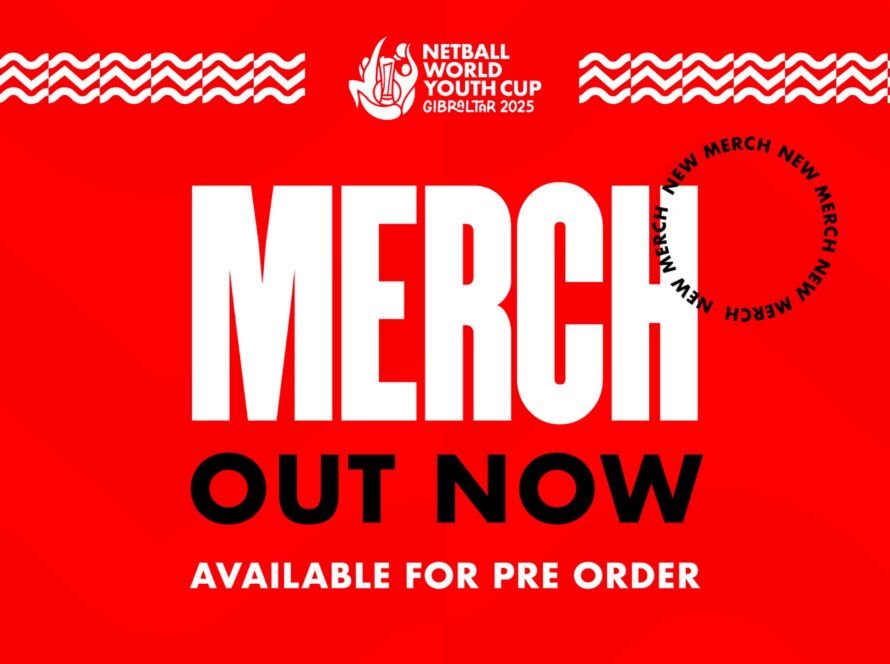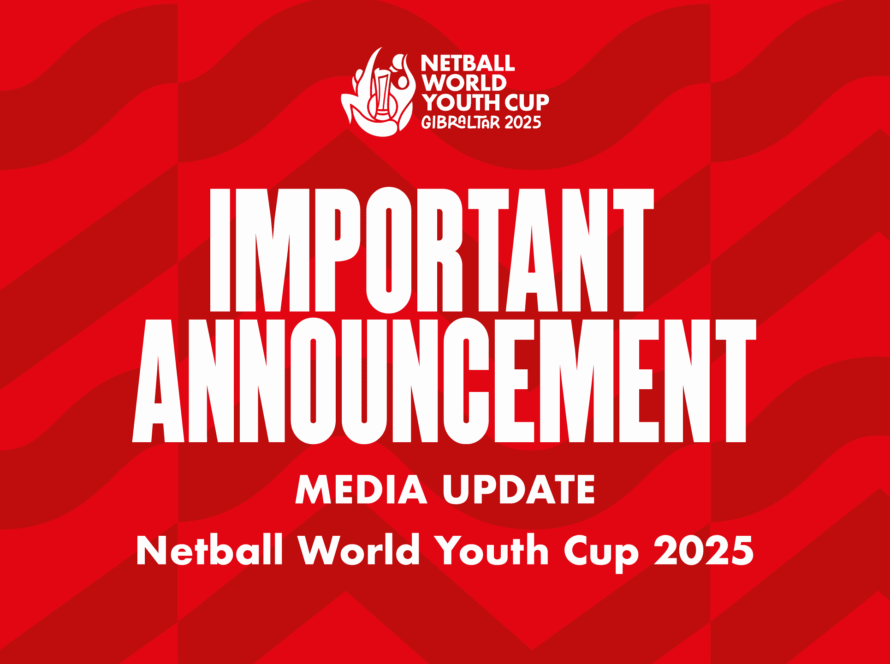With pool-stages completed, teams shifted into the battle for final standings, and the intensity on court reflected the stakes. Day 1 of the playoff stage brought fast starts, strong defensive pressure, and standout shooting displays, as nations looked to position themselves for the crucial final days of the competition.
Scotland struck first inside 10 seconds and captain Finn impressed with key interceptions to keep her side in touch early. England quickly found their rhythm, forcing turnovers and racing to a 16–8 first-quarter lead. Scotland’s shooters Watts and Turnbull combined well under relentless pressure, while England responded with accurate long-range shooting to extend to 35–14 at halftime. The second half saw the Scottish crowd roaring their team on, and Scotland lifted with some sharp finishing from Watts, but England’s depth and smooth ball movement through court secured a composed 64–33 win.
Trinidad and Tobago began brightly, applying pressure in the centre third and moving the ball with intent to edge ahead in the opening minutes. Malaysia stayed composed, using slick passing and sharp shooting to pull level, with the first quarter locked at 8–8 before they surged ahead late. Both sides battled for turnovers and worked tirelessly in defence, but Malaysia’s goal shooter was clinical and their midcourt consistency ensured they held momentum. Trinidad and Tobago continued to fight hard, especially in the circle, but Malaysia’s composure and accuracy across the court carried them through to a 52–40 victory.
Wales made a confident start, applying strong pressure in the goal third and pulling ahead 13–8 after the first quarter. Singapore pushed back with determination, using tactical changes and battling to find space against Wales’ tight defence. Wales responded with their strongest spell of the match, stretching the lead to 31–14 at halftime thanks to slick passing and accurate finishing. Singapore continued to fight in the second half with long-range shooting and bursts of defensive pressure, but Wales’ relentless consistency and sharp turnovers in the final minutes secured a 57–39 result.
New Zealand were clinical from the first whistle, scoring in the opening seconds and moving the ball from defence to attack with textbook precision. Malawi responded with creativity, including clever movement from their goal attack to find space under pressure, but New Zealand’s defensive intensity forced multiple turnovers. By halftime the score stood at 31–20, with Malawi showing determination to stay in the contest. The third quarter was fiercely physical, Malawi’s defence combining well to challenge New Zealand’s shooters, yet the Black-and-Whites stayed composed. In the final quarter, New Zealand’s relentless pace and accuracy pushed them clear to secure a 67–34 victory.
Both sides, Gibraltar and Fiji, opened confidently, going goal for goal early and showing composure across the court. Gibraltar’s shooter Shacaluga was on fire, converting with accuracy and giving her side momentum, while captain Torres led with strength and control in the midcourt. Fiji responded with patience and sharpness, capitalising on every turnover and converting their chances cleanly. Gibraltar continued to fight and impressed with passages of fluent play, but Fiji’s consistency and energy saw them take control, pulling away steadily to claim a 61–31 win.
Jamaica opened strongly, scoring first and leading 3–1 in the early exchanges, their goalkeeper McLean producing key interceptions to disrupt Australia’s flow. The Diamonds quickly found their groove, moving the ball with speed and feeding their shooters with precision to finish the first quarter ahead. Jamaica battled hard through Wilmot, who held strong under pressure and converted aerial feeds superbly, but Australia’s defensive unit read the game well and punished turnovers. By halftime they were 40–15 up and in full control. Jamaica fought with determination in the second half, but Australia’s relentless pace, accuracy, and sharpness from every player across the court powered them to a commanding 85–33 win.
Tonga vs Samoa started as a fast-paced, physical clash with both sides going goal for goal before Samoa pulled away late to lead 16–11 at quarter-time. Tonga came roaring back in the second, backed by their passionate supporters, narrowing the gap to just two before Samoa’s wing attack produced key interceptions and smart passing to restore control, giving them a 28–23 halftime advantage. The third quarter saw Samoa widen the lead with quick ball movement and strong finishing, while Tonga’s goal shooter worked tirelessly to keep them in touch. The final quarter was a fierce battle, with both teams contesting every rebound and turnover, but Samoa’s composure and attacking combinations carried them home 62–46.
Cook Islands opened the scoring and showed promise early with their defenders making strong interceptions, keeping the match close in the opening minutes. South Africa tightened their midcourt and began to dominate, stretching the lead to 18–13 after the first quarter. Their attacking unit clicked into gear with smooth feeds into the shooters, while the defensive unit forced turnovers that were swiftly converted. Cook Islands played with spirit and creativity, using sharp passing and accurate finishing to produce some fine moments, but South Africa’s pace and precision proved too much. Extending their lead with every quarter, the Proteas sealed a 79–45 victory to underline their quality.
With the first playoff matches complete, the battle for final standings is heating up. Teams have shown resilience, creativity, and flashes of brilliance across the last six days, but the intensity is building with every game. As the tournament edges closer to its climax, all eyes turn to the horizon of the finals, where the fight for top honours will soon reach its peak.
ENDS
Media Contact:
Notes to Editors:
World Netball
World Netball is the sole, internationally recognised, governing body for netball affiliated to the Association of Recognised International Sports Federations (ARISF), receiving funding from the International Olympic Committee.
World Netball creates a better world through netball, inspiring netballers to embrace opportunities and achieve their potential. Netball is played in more than 100 countries around the world with 76 National Netball Associations affiliated to World Netball. The associations are grouped into five Regions – Africa Netball, Americas Netball, Asia Netball, Europe Netball and Oceania Netball – each with a respective Regional Federation. Regional Federations are an integral part of the global governance structure and assist in the implementation of World Netball policies and the development of the sport in their respective regions.
For more information visit www.netball.sport



